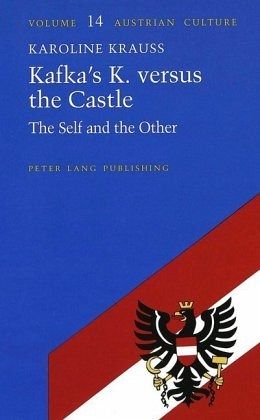Nicht lieferbar

Kafka's K. versus the Castle
The Self and the Other
Versandkostenfrei!
Nicht lieferbar
Kafka's last novel is preoccupied with an elusive authority named "the Castle". By insisting on entering the Castle, the protagonist K. inadvertently deconstructs its very presence: K. discovers that the Castle only exists as a rhetorical paradigm in the language of the village. This experience is the basis for K.'s existential maturation. Instead of striving to find meaning in a transcendent authority, K. gradually becomes responsible for his own subjective identity.



